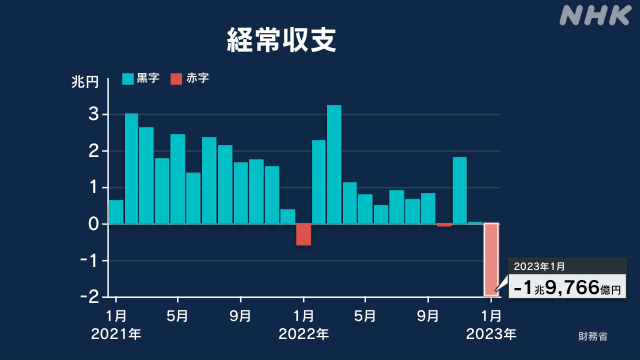January's current account deficit, which shows how much Japan has earned through trade and investment with foreign countries, was the largest deficit ever.
While the amount of imports increased due to soaring energy prices, the growth of exports slowed down due to the influence of the Chinese New Year and the Spring Festival, and the "trade balance" turned into a large deficit.
According to the balance of payments statistics released by the Ministry of Finance on the 8th, Japan's current account deficit in January was 1.9766 trillion yen.
It was the first deficit in three months since October last year, and the largest deficit since 1985, when comparable data are available.
The reason why the current account balance turned into a large deficit is that the "trade balance", which shows the earnings from trade, has become a deficit of 3,181.8 billion yen due to the increase in the import value of LNG = liquefied natural gas and coal. .
Also, during this period, local production activities stagnated during the Lunar New Year and Spring Festival in China, and the growth of exports from Japan slowed down.
On the other hand, the "primary income balance", which shows the income and expenditure status of dividends and interest received by Japanese companies from overseas subsidiaries, was 2.2905 trillion yen, the highest ever for January. It is not enough to make up for the deficit in the balance sheet.
On the other hand, the “travel balance” was a surplus of 177.9 billion yen due to an increase in the number of tourists from overseas due to the relaxation of border measures against the new corona.

